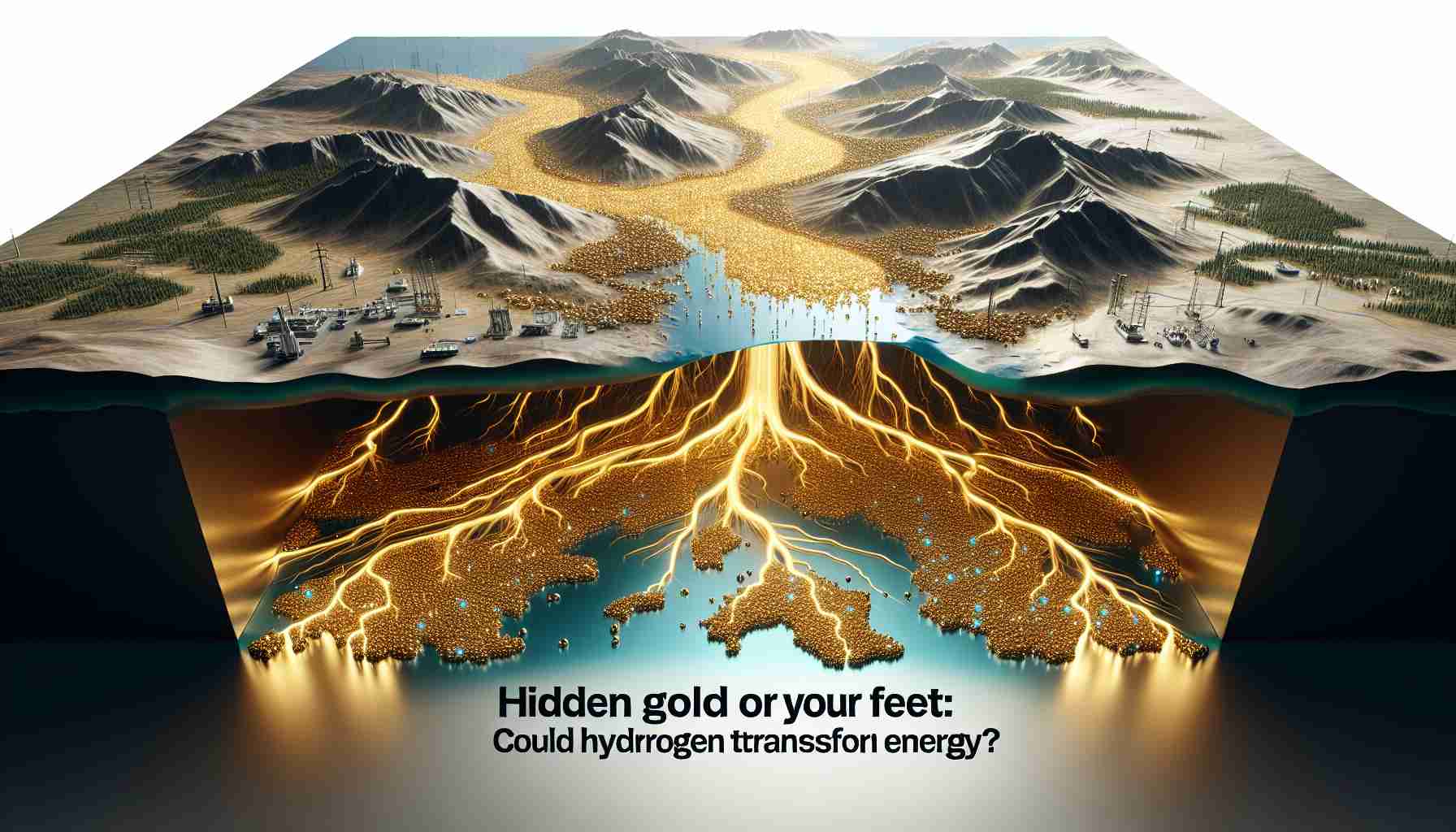
Revolutionary Discovery in Energy Resources
A groundbreaking study has revealed a staggering amount of hydrogen buried deep underground, capable of altering the global energy scene dramatically. This research estimates that around 6.2 trillion tons of hydrogen could exist in rocks and natural reservoirs, outpacing global oil reserves by an astonishing 261 times.
Led by Geoffrey Ellis, a renowned petroleum geochemist from the U.S. Geological Survey, this study published in Science Advances indicates that even harnessing a small portion of this hydrogen could transform energy consumption worldwide. The analysis shows that only 2% of this hydrogen—roughly 124 billion tons—could sustain humanity’s hydrogen needs to achieve net-zero carbon emissions for hundreds of years. This figure represents about twice the energy held in all the planet’s known natural gas reserves.
Hydrogen is heralded as a clean energy source with multiple uses, from powering vehicles to generating electricity. As countries rally to combat climate change, the demand for hydrogen is expected to soar, potentially making up 30% of future energy supplies.
While the discovery is promising, Ellis warns of challenges in accessing these immense reserves due to depth and geological constraints. Still, the opportunity for plentiful, naturally occurring hydrogen juxtaposes the complexities of producing synthetic forms. Researchers are now focused on identifying suitable locations for these reserves, with promising results anticipated in the coming year.
Unlocking the Future of Clean Energy: The Hidden Potential of Hydrogen
Introduction
Recent groundbreaking research has unveiled an astounding reservoir of hydrogen, potentially revolutionizing the global energy landscape. This remarkable finding could significantly impact the way humanity consumes energy, offering a cleaner alternative in the face of rising climate concerns.
Unprecedented Hydrogen Reserves
According to the study led by Geoffrey Ellis from the U.S. Geological Survey, the estimated 6.2 trillion tons of hydrogen that could exist in natural formations far exceeds global oil reserves. Such a vast supply offers a tantalizing solution to the world’s increasing energy demands.
Potential Impact on Energy Consumption
Harnessing even a fraction of this hydrogen—estimated at 124 billion tons, or merely 2% of the total—could support global hydrogen needs for centuries and help achieve net-zero carbon emissions. This quantity of hydrogen holds twice the energy contained in all currently known natural gas reserves, illustrating its potential as a primary energy source.
Use Cases for Hydrogen
Hydrogen is versatile, serving numerous applications in various sectors:
– Transportation: Hydrogen fuel cells can power vehicles with zero emissions.
– Electricity Generation: Hydrogen can be utilized in power plants, providing a cleaner alternative to fossil fuels.
– Industrial Processes: Hydrogen is essential in manufacturing processes, such as steel production and ammonia synthesis.
Growing Demand in the Energy Market
As nations advance toward green energy goals, the demand for hydrogen is projected to skyrocket, potentially supplying up to 30% of future energy needs. This transformation aligns with global initiatives aimed at reducing carbon footprints and combatting climate change.
Challenges Ahead
Despite its potential, accessing these underground hydrogen reserves poses significant challenges. The depth and geological conditions present considerable hurdles for extraction. Researchers are working diligently to pinpoint viable locations where these hydrogen deposits can be safely accessed, with breakthroughs expected soon.
Innovations in Hydrogen Technology
Recent advancements in hydrogen extraction technologies and supply chain logistics make accessing these reserves theoretically feasible. Innovations in electrolysis and hydrogen storage solutions are also aiding in making hydrogen a more practical energy solution.
Sustainability and Security Aspects
Hydrogen is energy-dense and emits only water vapor when utilized, making it an eco-friendly option. Moreover, domestic hydrogen production can reduce dependence on imported fossil fuels, enhancing energy security.
Market Analysis and Future Predictions
The global hydrogen market is poised for expansive growth, with investments flooding into the sector. Analysts predict that by 2030, hydrogen could become a $200 billion industry, fueled by technological advancements and supportive government policies aimed at sustainability.
Conclusion
The astonishing discovery of hydrogen reserves introduces a transformative opportunity for global energy consumption. As researchers continue to explore extraction methods and location identification, the future of hydrogen as a key player in the clean energy transition appears increasingly promising.
For further information on the advancements in energy research, visit Science Advances.



